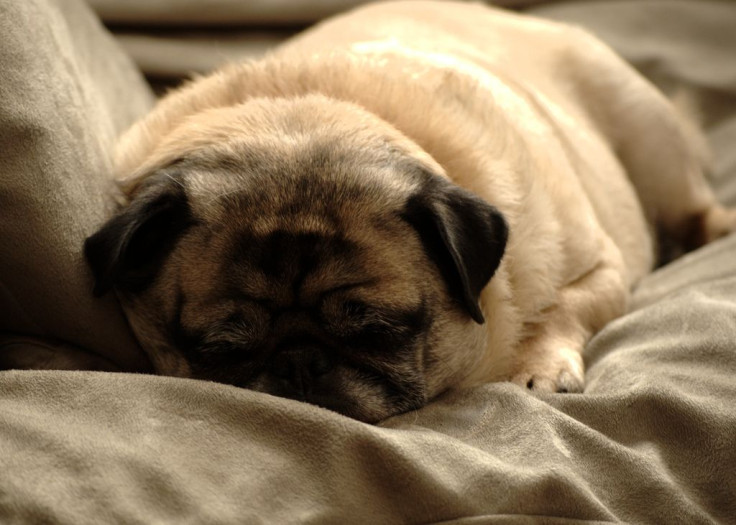The Shaky Science Between Our Sleep Positioning And How We Dream

Can people really trigger nightmares simply by sleeping the wrong way, as a recent article published by the sleep-centric website Van Winkle’s suggests? To make it short: Maybe, but probably not.
Writer and Senior Editor of Van Winkle’s, Matt Berical, opined on the question in a December 16 article. After detailing his and his girlfriend’s varying sleeping rituals, the latter being particularly prone to “thrashing” about during her slumber, Berical delved into several studies on the link between sleep positioning and how we dream. Though these studies are admittedly interesting, they're also quite shaky to boot.
Dozing Off
The first, a 2004 Turkish study, involved a poll of 63 healthy volunteers on their sleeping patterns, including their average frequency of nightmares. They were also asked to fill out a dream diary, which was then assessed by an experimenter for the type of emotions commonly felt in these recorded dreams, such as fear or happiness. These volunteers were separated by their stated preference for sleeping (and waking up) on their left or right side, leaving 41 right-siders and 22 left-siders.
Both groups were similar in most every way, from the percentage of those who could recall their dreams (around 68 percent), to the level of vividness or bizarreness they regularly experienced during their dreams. The one large difference was in the rate of nightmares they suffered, with 40 percent of the left-side group experiencing nightmares regularly (2 or more a week) compared to only 15 percent of the right-sided group.
Berical, however, mischaracterizes the study in several ways. For one, the subjects weren’t asked to sleep one way or the other, as he wrote — they were simply interviewed about their preferences and then asked to write down their dreams as they normally experienced them. That distinction matters because asking someone to remember the things they did or prefer can sometimes bring out inaccurate answers. Who’s to say that a right-sider always slept on the right side as they said they did?
Similarly, Berical flat out incorrectly summarized the study’s findings when it came to sleep quality. Right-siders had slightly better sleep quality, not worse, than left-siders. Perhaps the most glaring problem with the study, intriguing as it is, is its size. Even the authors themselves admitted they were only conducting preliminary research, but there doesn’t seem to have been any follow-up on the topic from them since its original publication.
The second study (published in 2012) referenced by Berical, which found that sleeping in the prone position (flat on your stomach) is associated with more erotic dreams, is sturdier but subject to many of the same limitations. Namely that it’s one study, involving interviews with people about their subjective, likely flawed, recollections. Two surveys, 8 years apart, unfortunately do not make for a conclusive answer to any question.
Coincidentally, a 2008 case report did find that a critically ill patient who was forced to receive mechanical ventilation in the prone position experienced dramatic and frightening hallucinations. And as Medical Daily has previously reported, sleeping on your back (supine position) is believed to increase the risk of experiencing sleep paralysis. Near as I can tell, however, that’s the extent of the research elsewhere on the connection between sleep position and strange semi- or unconscious experiences.
That doesn’t mean that sleep position can’t influence our dreams, of course — if only because how we sleep does influence our health. The surpine position is known to worsen conditions like sleep apnea and back pain, while stomach-sleeping is a risk factor for sudden infant death syndrome.
If that connection exists for dreams, however, it’s probably an indirect one. Nightmares happen to everyone, but it’s known that stress, anxiety and other mental health woes can especially trigger them. Maybe the simple act of sleeping in a position you feel uncomfortable in could possibly bring one on as well.
More likely than not, though, it’s almost certainly how we spend our days than how we end our nights that determines the quality of our dreams.



























